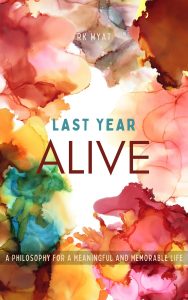So I read Robert M. Pirsig's Zen and the Art of Motorcycle Maintenance last summer and had mixed feelings. When reading the first part I thought Pirsig was just a self-satisfied prick who was trying somewhat hard to conceal the fact that he was Phaedrus, the super intelligent mystery man - while failing miserably since his identity was obvious from the start. I also thought he thought he was the only person in the entire world who could see the beauty of the world and the fact that most other people are too busy living their miserable lives to see it.
Then he talked about motorcycles and yes, I got it, it has both aesthetics and a functionality, and functionality can be aesthetic as well, I got it, could you please move on to the philosophy! And he started talking about the philosophy of the romatical and the classical and finally about quality and he never got to values even though the subtitle suggested it and I felt cheated.
But then again, if I ignore the subtitle and think of the book merely as an inquiry into quality, I get it, it gave me something to think about, even if it didn't open my eyes to the beauty of the world any more than they already were. The philosophical parts about quality and its all-permeable nature was something to think about. (I tried explaining quality to someone who's not read the book, with little success.)
It was a fun little book, and while I enjoyed the philosophy parts more than the roadtrip parts, I have warm memories of the read.
But then, a month or so later when thinking about this book, I realized how I should have viewed the roadtrip parts of the book:
The roadtrip, and writing about it, was to Pirsig what Italy, India, and Indonesia were to Elizabeth Gilbert. A chance to contemplate, a trip to think about life and existence and what made life worth living. And most importantly, to escape problems at home.
And while I still prefer the philosophy parts of Zen (and while I never liked Gilbert's book in general), I think it may have made a difference in the reading experience if I had had the wit to think about the story this way. It's a meditation. It's not supposed to be all theory - the practical applications and references may be more existent than I had thought, apart from the obvious ones.
This puts the whole book nicely into perspective.
RK

